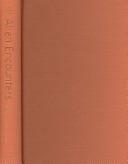| Listing 1 - 4 of 4 |
Sort by
|
Book
ISBN: 9780822391845 9780822352228 9780822352396 Year: 2012 Publisher: Durham Duke University Press
Abstract | Keywords | Export | Availability | Bookmark
 Loading...
Loading...Choose an application
- Reference Manager
- EndNote
- RefWorks (Direct export to RefWorks)
In The Gift of Freedom, Mimi Thi Nguyen develops a new understanding of contemporary United States empire and its self-interested claims to provide for others the advantage of human freedom. Bringing together critiques of liberalism with postcolonial approaches to the modern cartography of progress, Nguyen proposes'the gift of freedom'as the name for those forces that avow to reverence aliveness and beauty, and to govern an enlightened humanity, while producing new subjects and actions—such as a grateful refugee, or enduring war—in an age of liberal empire. From the Cold War to the global war on terror, the United States simultaneously promises the gift of freedom through war and violence and administers the debt that follows. Focusing here on the figure of the Vietnamese refugee as the twice-over target of the gift of freedom—first through war, second through refuge—Nguyen suggests that the imposition of debt precludes the subjects of freedom from escaping those colonial histories that deemed them'unfree.'To receive the gift of freedom then is to be indebted to empire, perhaps without end.
Liberty --- Ideology --- Refugees --- United States --- Foreign relations.
Book
ISBN: 0822352222 0822352397 0822391848 1283610906 9786613923356 Year: 2012 Publisher: Duke University Press
Abstract | Keywords | Export | Availability | Bookmark
 Loading...
Loading...Choose an application
- Reference Manager
- EndNote
- RefWorks (Direct export to RefWorks)

ISBN: 9780822339106 0822339102 9780822339229 0822339226 0822389835 Year: 2007 Publisher: Durham: Duke university press,
Abstract | Keywords | Export | Availability | Bookmark
 Loading...
Loading...Choose an application
- Reference Manager
- EndNote
- RefWorks (Direct export to RefWorks)
A collection of essays that examine the production and consumption of Asian American popular culture, from musical expression to television cooking shows.
Asian Americans --- Popular culture --- Intellectual life. --- Ethnic identity. --- Social life and customs. --- Study and teaching. --- United States --- Ethnic relations. --- Asian American studies --- Asians --- Ethnology --- Asian Americans - Intellectual life. --- Asian Americans - Ethnic identity. --- Asian Americans - Social life and customs. --- Asian Americans - Study and teaching. --- Popular culture - United States. --- United States - Intellectual life. --- United States - Social life and customs. --- United States - Ethnic relations.
Multi

ISBN: 9781479808168 Year: 2021 Publisher: New York, N.Y. New York University Press
Abstract | Keywords | Export | Availability | Bookmark
 Loading...
Loading...Choose an application
- Reference Manager
- EndNote
- RefWorks (Direct export to RefWorks)
| Listing 1 - 4 of 4 |
Sort by
|

 Search
Search Feedback
Feedback About UniCat
About UniCat  Help
Help News
News